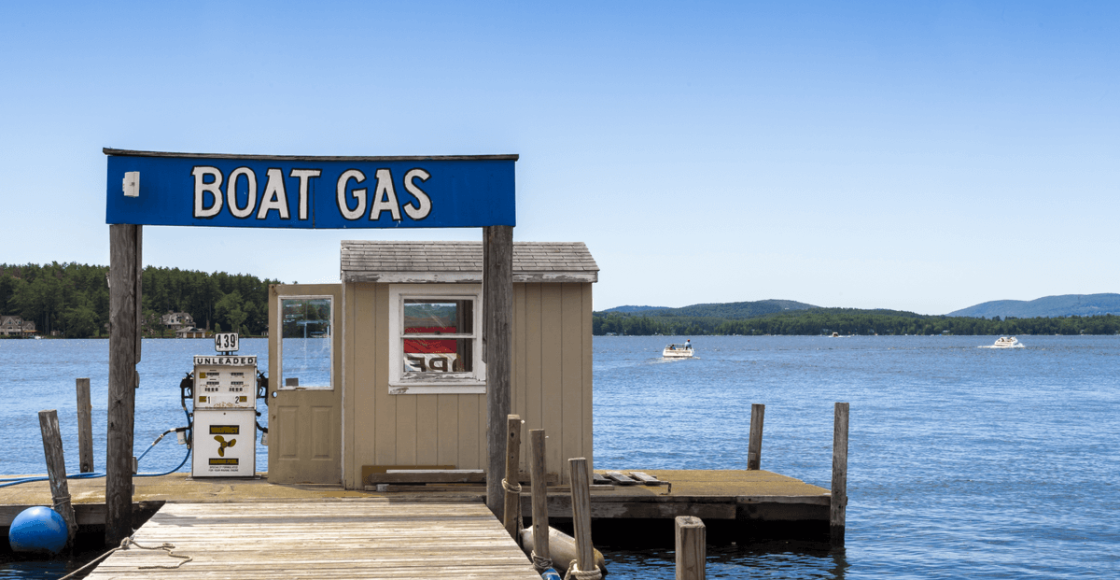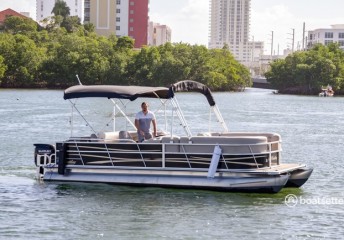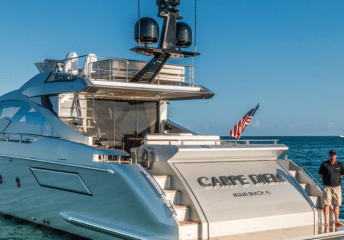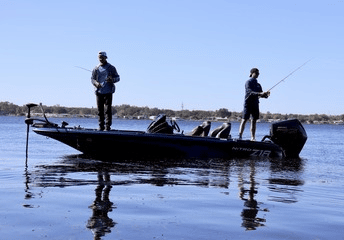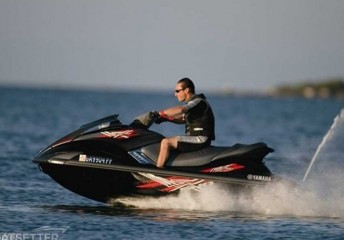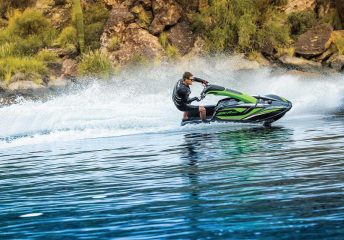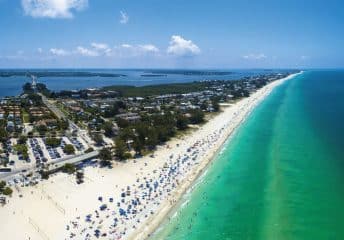Boat Fuel Consumption: 5 Tips for Measurement, Efficiency, and Savings
Last Updated on November 3, 2023 by Boatsetter Team
Boat fuel consumption can be a rather significant expense, and it’s one that goes up as gas prices rise. While it’s true that you have to pay to play, there are some measures boaters can take to cut down on this expense as the price of gas goes up.
Here are five tips to help save money on marine fuel for your boat:
- Lighten your load by removing excess gear and weight.
- When operating, bring the boat on plane, then leave the throttle alone.
- Understand how to properly trim your boat—if the bow seems high, trim it down.
- Ensure your boat’s propeller is the right size, material, and model to maximize performance.
- Keep the bottom of your boat’s hull clean and smooth.
Read on for further details and instructions on implementing each of these five tips, and be sure to use a boat fuel consumption chart to understand your engine’s ideal fuel economy.
Own a Boat? Learn How to Offset the Cost of Ownership by Listing on Boatsetter
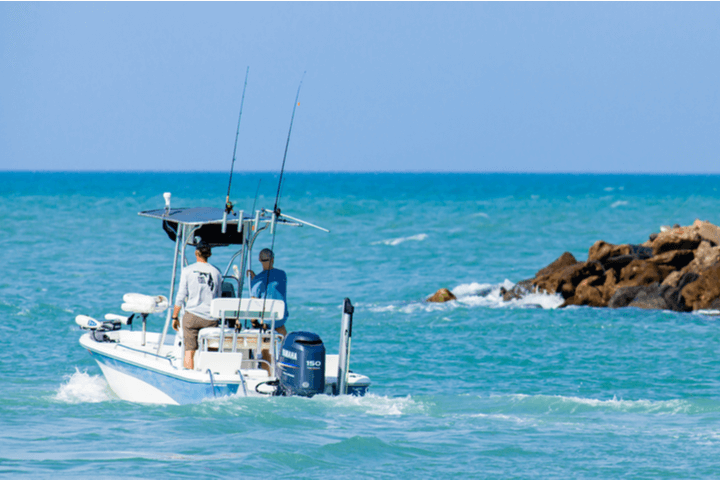
1. Lighten the Load
Many boats get loaded down over time without anyone even noticing, and the heavier your boat is, the less efficient it will be. While some gear is absolutely necessary, some other stuff may not be — and when added up it can weigh a ton.
- Think about removing that extra anchor rode, the big box of fishing weights, dishware that never gets used, and similar items from the boat.
- Also consider the water and waste tanks, if your boat has them. Can you get by with a half-full water tank? If so, you’ll shed eight pounds per gallon. W
- When is the last time you pumped out the waste tank? Again, you can remove a lot of weight from the boat by lowering its level.
2. Bring the Boat on Plane, then Leave the Throttle Alone
As is true with cars, boats tend to burn less gas at slower speeds. Boats are different, however, in that most get the worst fuel economy just below planning speed and the best economy just above it.
There are certainly some exceptions (such as some trawlers and some boats propped to go very fast) but as a general rule, the average outboard powerboat will break onto plane right around 3000 to 3500 RPM. And in most cases, this is where they get the best cruising fuel economy.
Note that on newer board your MPG may be displayed on a gauge at the helm. In this case, simply eyeball that gauge and you can see just when the boat’s getting its peak mileage.
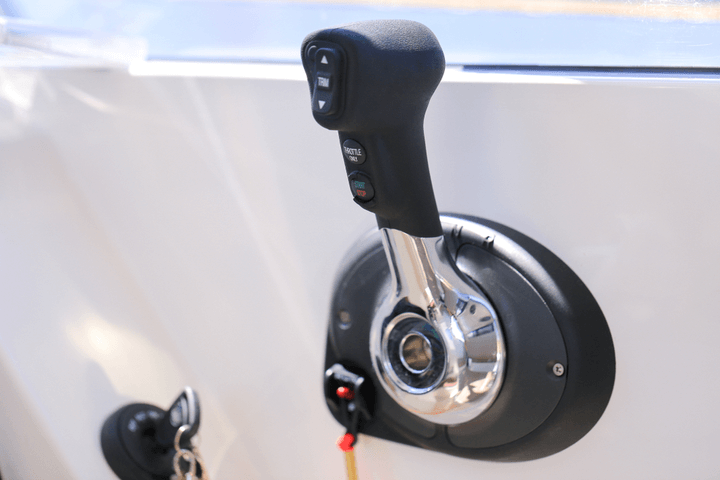
3. Tweak the Trim
Most boats run best on an even keel at a slight inclination of just two to four degrees. But depending on the boat’s design and the weight distribution of gear and passengers, you may need to adjust engine or drive trim and/or trim tabs to get it running this way.
If the bow seems to dig in try trimming the bow up a bit, and if you have to crane your neck to see over the bow, trim the bow down some.
4. Make Sure You Have the Right Propeller
Few boaters ever change propellers to see if they can gain a performance edge, but doing so can add several MPH to your cruising speed, which equates to more miles traveled for less gas burned.
Finding the ideal prop for your boat may take some experimentation; remember that your goal is to turn wide-open RPM in the middle of the manufacturer’s recommended range, and adding an inch of pitch will decrease rpm by about 200, while dropping by an inch will increase RPM by about the same amount.
Also note that switching from an aluminum propeller to a stainless-steel model can gain you one to three MPH, as well.
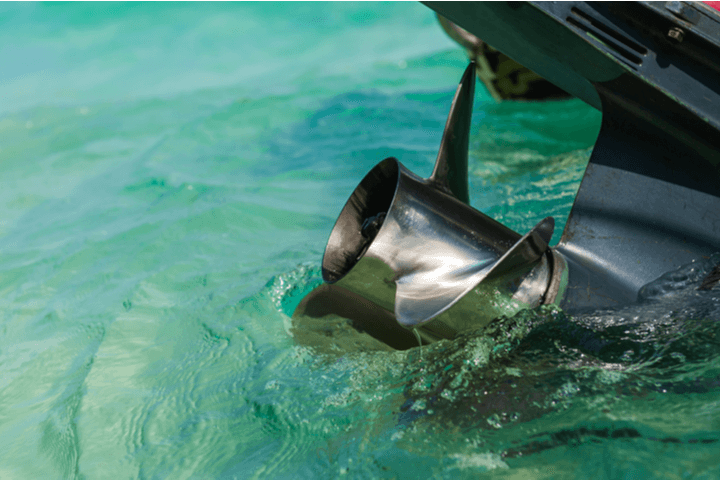
5. Keep the Bottom of Your Boat Clean
Few things sap speed and increase fuel consumption like a dirty bottom. While antifouling paint will keep most of it at bay, its effectiveness can drop with age. Plus, even a freshly-painted boat can develop a layer of scum or slime, and many boats have unpainted underwater surfaces like transducers that growth can adhere to.
- So, if your boat lives in a wet slip it’s a good idea to pull up to a sandbar or beach once in a while and gently scrub the bottom.
- If there are any areas where more substantial growth has attached, scrape them clean with a rigid object that won’t damage the surfaces, like a plastic putty knife.
Employ all of these tips, and your boat may burn one, five, or even 10 gallons less fuel on your very next trip. Every boat will be different, of course, but no matter how large or small it may be, at today’s gas prices those saved gallons can add up to some serious cash in the bank.
Earn an Average of $20,000 or More by Listing Your Boat for Rent on Boatsetter
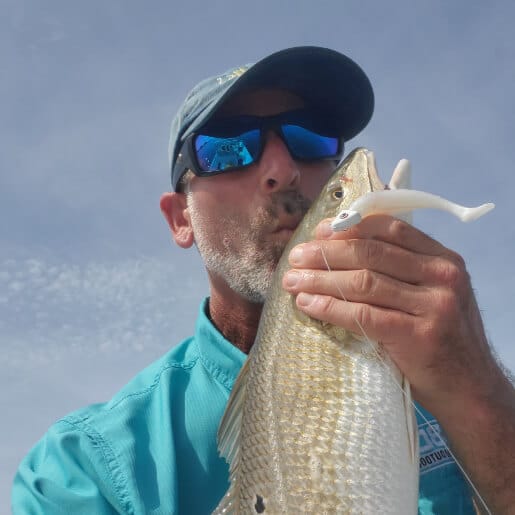
With over three decades of experience in marine journalism, Lenny Rudow has contributed to dozens of boating and fishing publications and websites ranging from BoatU.S. Magazine to BDOutdoors.com. Rudow is currently the Angler in Chief at Rudow’s FishTalk, he is a past president of Boating Writers International (BWI), a graduate of the Westlawn School of Yacht Design, and has won numerous BWI and OWAA writing awards.
